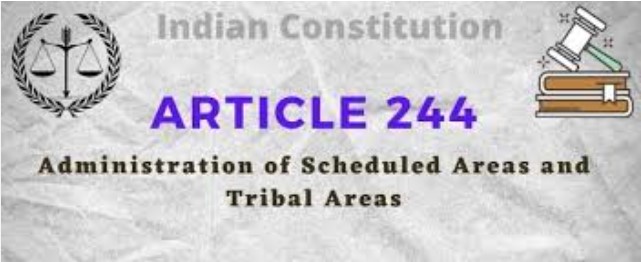Context:
In Diphu, a tribal majority Lok Sabha constituency in Assam, candidates of all parties have pledged to implement Article 244(A) aiming to establish an autonomous ‘state within a state’ in this election.
About Diphu constituency and its social profile:
- Diphu, the least densely populated among Assam’s 14 Lok Sabha constituencies is reserved for Scheduled Tribes (STs).
- It covers six legislative Assembly segments in three tribal-majority hill districts of Assam: Karbi Anglong, West Karbi Anglong, and Dima Hasao.
- Governed under the Sixth Schedule of the
- Constitution, these districts fall under two autonomous councils: the Karbi Anglong Autonomous Council (KAAC) and the North Cachar Hills Autonomous Council.
- Voters in this constituency represent diverse communities, including the Karbi, Dimasa, Hmar, Kuki, Rengma Naga, Zeme Naga, Bodo, Garo, Assamese, etc.
- Despite this diversity, only the members of the Karbi community have consistently represented the seat since 1977.
Article 244(A) of the Constitution:
- Article 244(A) was added through the Constitution (Twenty-second Amendment) Act, 1969, empowering Parliament to enact legislation for the creation of an autonomous state within Assam, encompassing specific tribal areas, including Karbi Anglong.
- This autonomous state would have its own Legislature, Council of Ministers, or both.
- It represents a more advanced form of governance compared to the existing provisions of the Sixth Schedule applicable in these regions.
- The autonomous councils established under the Sixth Schedule have elected representatives to provide decentralized governance, but their authority is limited.
- Because they lack control over law enforcement and possess restricted financial powers.
The evolution of the autonomy demand:
- The demand for autonomy dates back to the 1950s movement in the hill areas of undivided Assam, demanding for a separate hill state.
- This movement led to the establishment of Meghalaya as a full-fledged state in 1972.
- Despite this, owing to the assurances provided by Article 244(A), leaders of the Karbi Anglong region opted to remain integrated with Assam.
- The Autonomous State Demand Committee (ASDC), formed as a mass organization championing regional autonomy, has been operating ever since its formation.
- In 1995, the ASDC, alongside student bodies in the region, entered into a Memorandum of Settlement with the state and central governments to enhance the powers of two autonomous councils.
- However, implementing Article 244(A) escalated into armed insurgency.
- In 2021, a peace settlement was reached with five militant groups in Karbi Anglong, including the Karbi People’s Liberation Tigers, People’s Democratic Council of Karbi Longri, Karbi Longri NC Hills Liberation Front etc.
- This agreement pledged greater autonomy and a special development package worth Rs 1,000 crore over five years.
- Likewise, last year, an agreement was also reached with the Dimasa National Liberation Army, following similar lines.
Current scenario of Diphu:
- The discussions around Article 244(A) have not been silenced despite the signing of the peace accords.
- All the candidates of the Loksabha constituency are promising the implementation of Article 244(A) as their primary campaign slogan.
- Successive state and central governments have often ignored this issue and attempted to regain authority over Diphu rather than increasing it’s autonomy.

